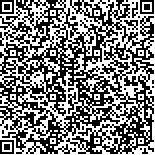| 引用本文: | 黄凌斐,高鹏,吴梦华,朱正怡,倪映华,杨巨飞,缪静.中国儿科药学门诊开展现状调研与分析[J].中国现代应用药学,2023,40(22):3070-3075. |
| HUANG Lingfei,GAO Peng,WU Menghua,ZHU Zhengyi,NI Yinghua,YANG Jufei,MIAO Jing.Investigation and Analysis on the Current Situation of Pediatric Pharmacist-managed Clinic in China[J].Chin J Mod Appl Pharm(中国现代应用药学),2023,40(22):3070-3075. |
|
| |
|
|
| 本文已被:浏览 2714次 下载 925次 |

码上扫一扫! |
|
|
| 中国儿科药学门诊开展现状调研与分析 |
|
黄凌斐1, 高鹏1, 吴梦华1, 朱正怡1, 倪映华1, 杨巨飞1, 缪静1,2
|
|
1.浙江大学医学院附属儿童医院药剂科, 国家儿童健康与疾病临床医学研究中心, 杭州 310052;2.浙江大学临床药学研究中心, 杭州 310058
|
|
| 摘要: |
| 目的 调研中国儿科药学门诊的开展现状,为儿科药学门诊建设及提升提供参考。方法 以中国儿童专科医院、妇幼保健院/妇儿医院、设有儿科的综合医院为调查对象,通过问卷星平台发放调查问卷,采用SPSS 26.0进行数据统计,分析儿科药学门诊开展基本情况,出诊药师资质,岗位培训情况及培训需求等。结果 收集有效问卷101份,共55家(54.5%)医院已开设儿科药学门诊,其中35家为药师独立门诊,大多数具备良好的医疗文书管理及患者管理流程。但70%左右医院未收取挂号费,一半以上医院日就诊量<5人次。85.5%的药学门诊由临床药师出诊,约半数为工作年限>10年的资深临床药师,仅3.6%的出诊药师有特定处方权。岗位培训调研结果显示,101家医院中,有36家医院药师有药学门诊培训经历,其中25家已开展儿科药学门诊。除药学专科知识外,>50%的药师对医患沟通及分析解决问题能力提升有强烈需求,30%~40%的需求集中在病史及用药史采集,心理疏导能力及药学门诊实践案例学习。结论 目前国内儿科药学门诊呈现蓬勃发展趋势,但存在收费率低,就诊量少,相关药师岗位培训不足等情况,儿科药学部门应积极探索适宜的药学门诊服务模式,并构建儿童专科培训体系以提升药学门诊药师的岗位胜任力。 |
| 关键词: 儿科 药学门诊 岗位培训 胜任力 |
| DOI:10.13748/j.cnki.issn1007-7693.20232535 |
| 分类号:R95 |
| 基金项目: |
|
| Investigation and Analysis on the Current Situation of Pediatric Pharmacist-managed Clinic in China |
|
HUANG Lingfei1, GAO Peng1, WU Menghua1, ZHU Zhengyi1, NI Yinghua1, YANG Jufei1, MIAO Jing1,2
|
|
1.Department of Pharmacy, Children's Hospital, Zhejiang University School of Medicine, National Clinical Research Center for Child Health, Hangzhou 310052, China;2.Research Center for Clinical Pharmacy, Zhejiang University, Hangzhou 310058, China
|
| Abstract: |
| OBJECTIVE To investigate the current situation of pediatric pharmacist-managed clinic in China, and to provide reference for pediatric pharmacist-managed clinic construction and improvement. METHODS Domestic Children's hospitals, Women's & Children's Hospital, and general hospitals with pediatric unit were selected as the survey objects, questionnaires were distributed through the Wenjuanxing Application, and SPSS 26.0 was used to describe the data. The development of pediatric pharmacist-managed clinic, the qualification of visiting pharmacists, the situation of post training and training needs were analyzed. RESULTS A total of 101 valid questionnaires were collected. Pediatric pharmacist-managed clinics had been set up in 55(54.5%) hospitals, of which 35 were independent pharmacists' clinics, and most had well medical document and patient management processes. However, about 70% of hospitals did not charge registration fees, and more than half of hospitals had fewer than 5 patient-visits per day. 85.5% of the hospitals were visited by clinical pharmacists, and about half of them were senior clinical pharmacists with more than 10 years of working experience. But only 3.6% of visiting pharmacists had the right of specific prescription. In 101 hospitals relevant post training for pharmacists had been carried out in 36 hospitals, of which 25 hospitals had set up pharmacist-managed clinic. In addition to pharmaceutical expertise, more than 50% of pharmacists had a strong demand for the improvement of physician-patient communication and problem-solving ability, and 30%-40% of the demand was focused on the collection of medication history, psychological counseling ability, and case-based learning in the pharmacist-managed clinic. CONCLUSION At present, the domestic pediatric pharmacist-managed clinic shows a vigorous development trend, however, there are insufficient registration fees, visits, and post training. Appropriate service methods of pediatric pharmacist-managed clinic should be actively explored, and a pediatric specialized training system for should be well constructed to improve the competency. |
| Key words: pediatric pharmacist-managed clinic post training competency |
|
|
|
|
